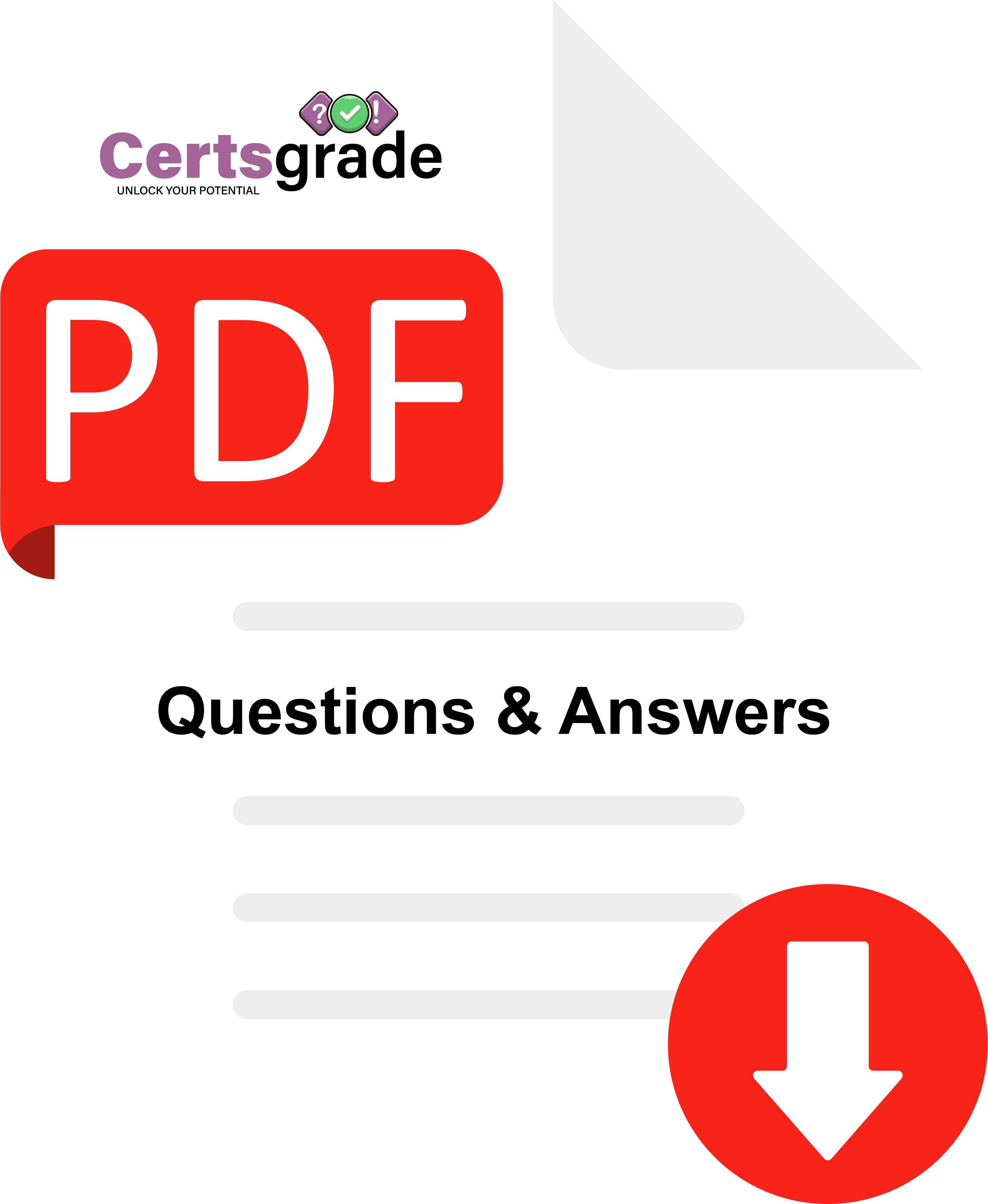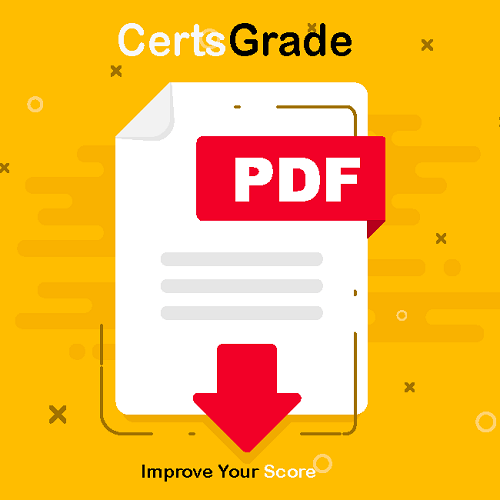 CPACC
CPACC
- Last Updated :
Latest CPACC Questions Answers
$49.00
CertsGrade provides thorough study materials for the CPACC exam. The content covers all relevant International Association of Accessibility Professionals - Certified Professional in Accessibility Core Competencies certification concepts, and the practice tests enhance exam readiness.
I cannot praise CertsGrade.com enough for their exceptional PDF study materials. They were thorough and clear, leading me to success in my exam.
PDF Dumps for Certsgrade CPACC Exam Practice
CPACC Accessibility Core Competencies Exam
The Certified Professional in Accessibility Core Competencies is an internationally recognized certification offered by the International Association of Accessibility Professionals IAAP. The CPACC exam is designed to assess the knowledge and skills of professionals who work in the field of digital accessibility.
Digital accessibility is a critical issue in today’s world, as more and more businesses and organizations move online. People with disabilities face significant barriers to accessing digital content, which can limit their ability to participate fully in society. The IAAP-CPACC certification demonstrates that professionals have a thorough understanding of digital accessibility principles and can apply them to ensure that digital content is accessible to all.
Exam Overview
The CPACC exam consists of 100 multiple-choice questions and must be completed within two hours. The exam covers a range of topics related to digital accessibility, including accessibility laws and standards, assistive technologies, accessibility testing, and inclusive design. Candidates must achieve a minimum score of 75% to pass the exam.
Exam Preparation
To prepare for the CPACC exam, candidates should have a solid understanding of digital accessibility principles and practices. The IAAP offers a range of resources to help candidates prepare for the exam, including online courses, study materials, and practice exams. Candidates should also have practical experience in the field of digital accessibility.
Benefits of CPACC Certification
CPACC certification can provide many benefits to professionals in the field of digital accessibility. Certified professionals can demonstrate their expertise to employers and clients, which can lead to new opportunities and career advancement. CPACC certification can also help professionals stay up-to-date with the latest trends and developments in the field of digital accessibility.
Maintaining CPACC Certification
CPACC certification is valid for three years, after which certified professionals must renew their certification. To renew their certification, professionals must demonstrate that they have completed 30 hours of continuing education in the field of digital accessibility.
Course Content for Accessibility Core Competencies Exam (CPACC)
Course Overview
This Certsgrade course is designed to provide students with the knowledge and skills necessary to become a Certified Professional in Accessibility Core Competencies. The course covers essential concepts, techniques, and standards that are necessary to ensure that digital content and technology are accessible to people with disabilities. Students will gain a solid understanding of accessibility requirements, guidelines, and best practices, as well as the tools and techniques used to assess and remediate accessibility issues. The course also covers topics related to accessibility laws, regulations, and policies, making it suitable for professionals in a variety of industries.
Course Objectives
Upon completing this Certsgrade course, students will be able to:
- Understand accessibility concepts and principles, and the importance of accessibility for people with disabilities.
- Evaluate the accessibility of digital content and technology using established guidelines and techniques.
- Develop and implement effective accessibility policies, plans, and strategies.
- Understand the legal requirements and policies related to accessibility.
- Apply accessible design and development principles to create accessible digital content and technology.
- Understand assistive technologies and their use in making content and technology accessible to people with disabilities.
- Communicate effectively with stakeholders, including people with disabilities, to ensure that accessibility is integrated into all aspects of content and technology development.
Course Content
The Certsgrade’s Accessibility Core Competencies course is divided into several modules, each covering a different topic related to accessibility. The following are the main topics covered in the course:
Module 1: Introduction to Accessibility
- Overview of accessibility and its importance for people with disabilities
- Types of disabilities and their impact on accessibility
- Key accessibility standards and guidelines, including WCAG and Section 508
Module 2: Accessibility Evaluation
- Techniques for evaluating the accessibility of digital content and technology
- Common accessibility issues and how to address them
- Tools and resources for accessibility evaluation
Module 3: Accessibility Policy and Planning
- Developing accessibility policies, plans, and strategies
- Best practices for integrating accessibility into development processes
- Training and awareness strategies for promoting accessibility
Module 4: Legal and Policy Requirements
- Overview of accessibility laws and policies, including Section 508, ADA, and AODA
- Compliance requirements and testing strategies
- International accessibility policies and standards
Module 5: Accessible Design and Development
- Principles of accessible design and development
- Techniques for creating accessible content, including web, mobile, and desktop applications
- Testing and validating accessibility
Module 6: Assistive Technologies
- Overview of assistive technologies and their role in accessibility
- Types of assistive technologies and how they work
- Strategies for integrating assistive technologies into digital content and technology
Module 7: Communication and Collaboration
- Effective communication with stakeholders, including people with disabilities
- Collaboration strategies for integrating accessibility into development processes
- Accessibility-focused project management and coordination
Conclusion
The CPACC certification is an essential credential for professionals who work in the field of digital accessibility. By demonstrating a thorough understanding of digital accessibility principles and practices, certified professionals can help ensure that digital content is accessible to all. With the increasing importance of digital accessibility, this certification is becoming an increasingly valuable credential in the field. In conclusion, this IT course provides a comprehensive overview of the latest technologies and industry best practices. We hope you found it useful. Keep learning and growing! Connect with us on:
